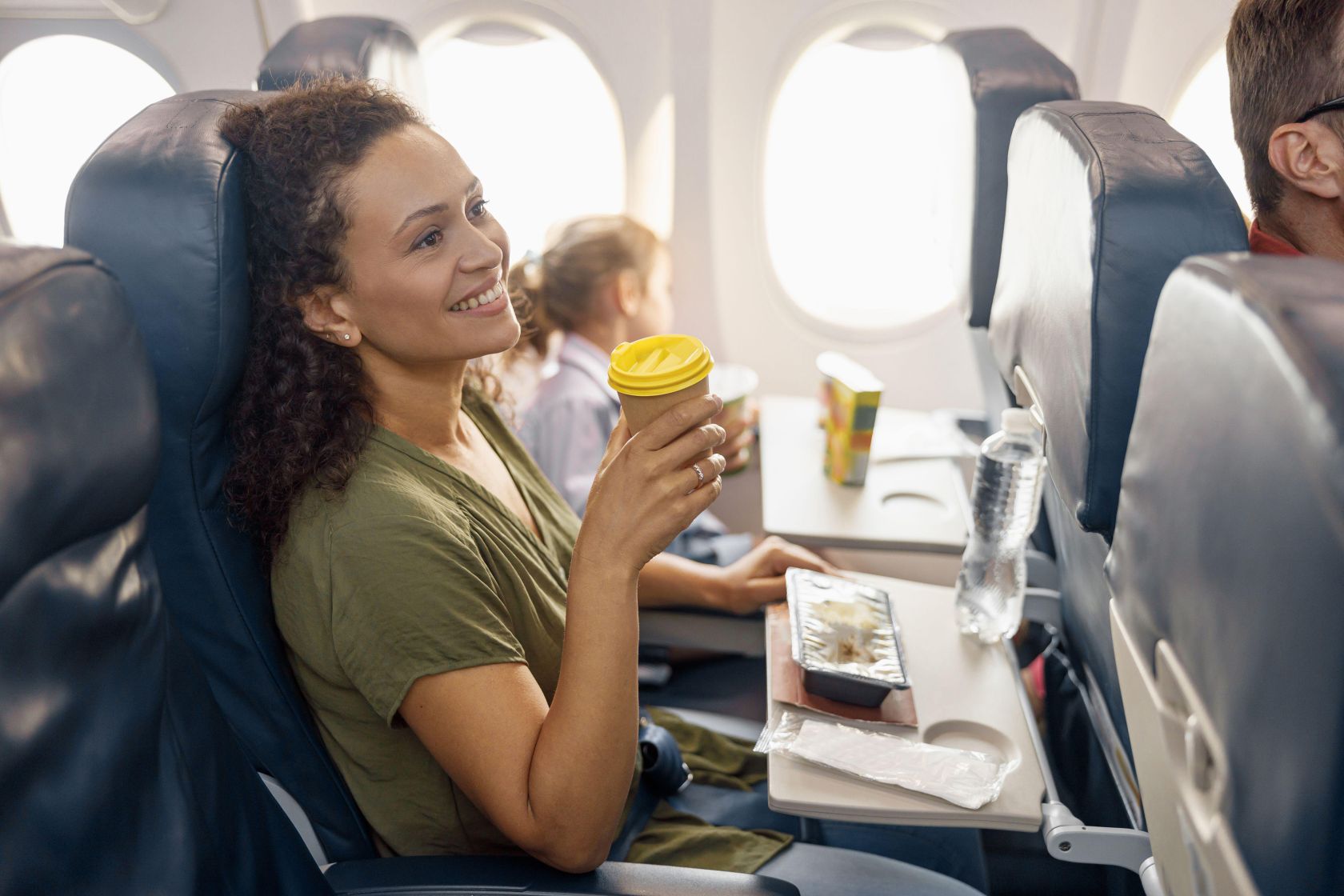With holidays becoming more of a luxury, it’s important to ensure that you have all bases covered – including making the flight experience as smooth and comfortable as possible.
So, what are the best travel hacks to ensure you have the best holiday experience? We asked travel experts and frequent flyers to share everything their top hacks…
Avoid heavy, greasy meals
Jenna Wright, a cabin crew member, has a solution for avoiding post-flight bloat.
“Bloating is one of the most annoying things about flights – especially when travelling long-haul,” Wright says.
“The combination of reduced air pressure, dehydration and sitting for long periods of time slows down your digestion and leads to a build-up of gas in your digestive tract. This is why you often feel bloated, gassy and nauseated while flying.
“For travellers who are trying to minimise post-flight bloat, I would suggest avoiding eating anything heavy, spicy or greasy before you fly. Instead, try to stick to foods that are easier to digest.”

Follow the 24-hour rule to rehydrate
Abby Dunn, marketing manager at Ocean Florida, who has made the nine-hour flight to Florida 42 times, also shares her top tip for dealing with bloating and flight-triggered digestive discomfort.
“The best thing you can do to minimise bloating and ensure comfort is to hydrate yourself – not only before your flight but also once you make it to your hotel or holiday villa too,” says Dunn.
“Try to follow the 24-hour rule – upping your water intake for 24 hours before and after your flight to prevent dehydration and water retention.”
This will help keep dehydration headaches and dry skin at bay, too.
Skip the aeroplane food
If you are especially prone to bloating and feeling the effects of dehydration, you might also want to skip the in-flight meal and bring your own food.
“You lose your taste buds in the air, so they fill the food with salt and oil to try and give it some flavour – which is extremely bloating,” Wright adds.
Use technology to your advantage
For Lee Dobson, co-founder of Travel City, noise-cancelling headphones are a travel must-have.
“They create a personal oasis of calm, even in the noisiest of cabins (or help me focus if I’m trying to finish a report on the flight),” he says.
“Alongside that, I always ensure my iPad is loaded with shows, movies, and playlists to keep me entertained. The power bank is just as important; there’s nothing worse than gearing up to watch a film or listen to a podcast only to find my battery is flat.
“This combination of tech essentials has levelled up my in-flight experience, making long hauls feel like a breeze and ensuring I arrive at my destination relaxed and ready to explore.”
Bring an extension chord
Sasha Kalonji, who regularly travels for work as a global public health project officer, says her personal favourite is remembering to pack an extension chord.
“You’ll only need one adapter, but you’ll have multiple outlets to charge your electrical devices and you can use your hair styling tools at the same time,” says Kalonji.
Pack three days’ worth of clothes
You never know what can happen once you’ve arrived at your destination, so it’s important to be prepared and think ahead if you’re going on a long holiday. If luggage goes missing, you don’t want to be stuck unable to enjoy the first few days until it’s located.
“Always pack at least three days’ worth of clothes in your hand luggage, even if you don’t have a connecting flight and especially if you have an important event to go to, like a wedding,” says Kalonji.
“Luggage often gets held up for security checks or other reasons.”

Use a VPN
Safety should always be a priority when travelling, especially if you are doing it solo.
“Use a VPN when using public WiFi, including at the hotel, to help keep your data safe,” says Kalonji.
And speaking of hotels, Kalonji also advises people to “use antibacterial wipes to wipe down your phone and remote in your hotel”. Those are things that frequently get touched.
Leave your main bank cards at home
“Don’t bring your main bank cards on holiday,” suggests Kalonji. “If cards are stolen, it reduces the risk of a large sum of money being taken [out of your account]. I bring two cards [from] Monzo and Starling [Bank] and transfer money into the accounts as and when [they] needed.”









